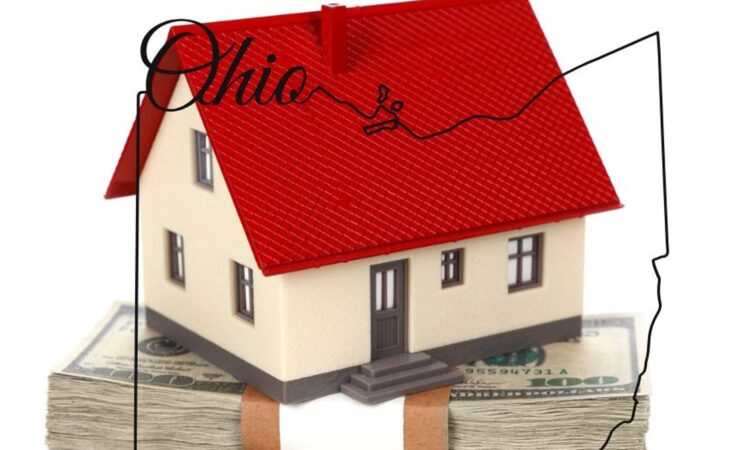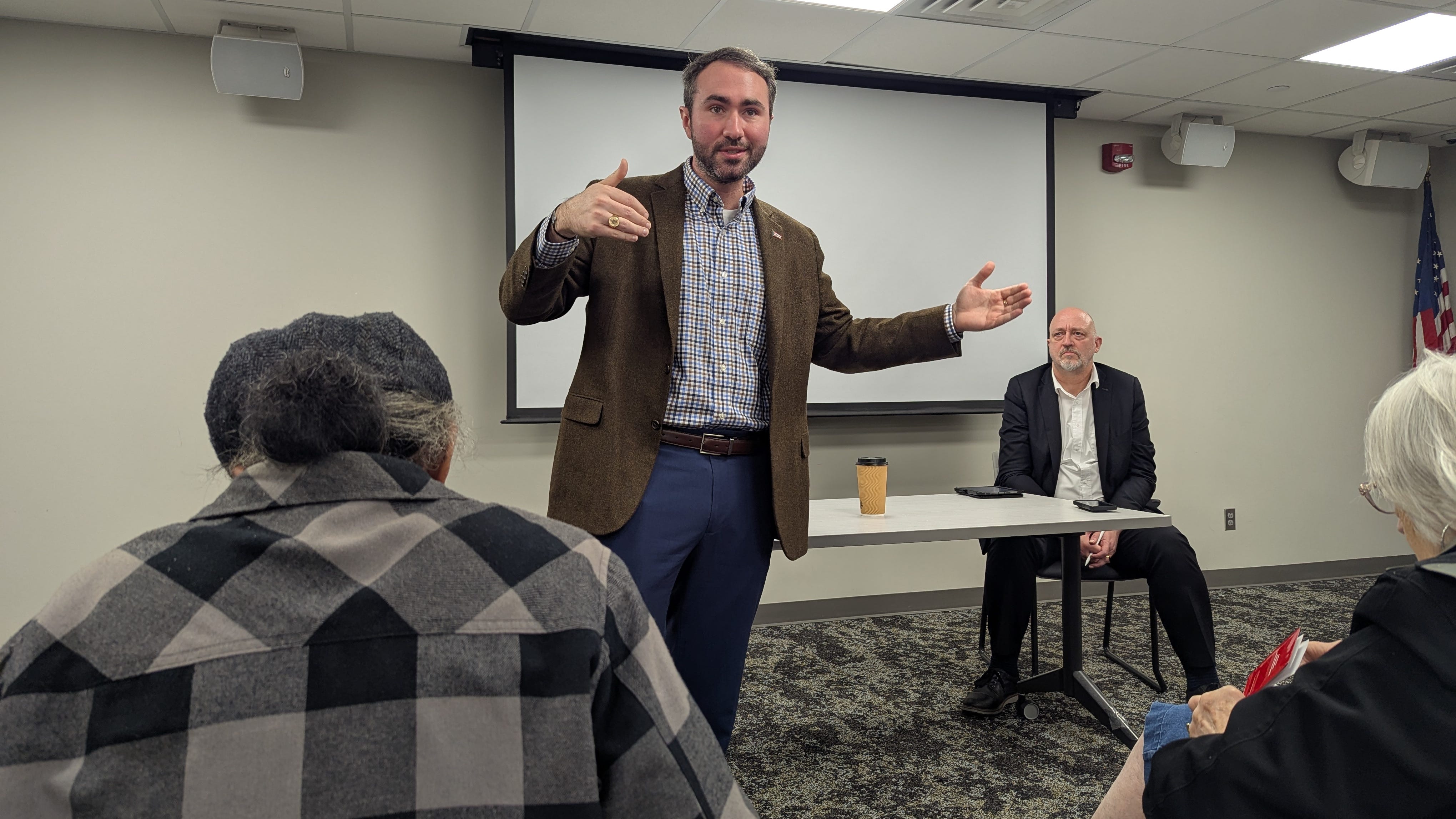

Town hall shows frustrations over property taxes
Ohio State Rep. David Thomas, R-Jefferson, addresses a property tax town hall organized by state Rep. Gary Click, R-Vickery, in Fremont, Ohio.
- Ohio House Bill 335 proposes eliminating inside millage, allowing voters to fully decide property tax rates.
- The bill aims to provide $3.5 billion in property tax relief, but concerns exist regarding funding for essential services.
- Supporters argue the bill promotes efficiency and empowers voters, while opponents fear negative impacts on communities and education.
Ohioans could see $3.5 billion in property tax relief next year under a new plan that would dramatically reshape the state’s tax system.
Reps. David Thomas, R-Jefferson, and Bill Roemer, R-Richfield, introduced House Bill 335 to eliminate what’s known as inside millage, the amount homeowners can be taxed without voter approval. The Ohio Constitution allows local governments to levy up to 10 mills − or 1% of a property’s value − before going to the ballot.
Schools, cities and counties treat inside millage as a guaranteed amount of revenue. But as homeowners decry high property taxes, Thomas said it’s time for major changes that would force local governments to reexamine how they pay for services.
“Moving forward, no matter what happens with their property value, they’re empowered as a voter to make that decision themselves of how best to fund the local services that they know are essential,” Thomas said during a June 4 news conference.
The new proposal came as lawmakers toil away at the state budget, which Gov. Mike DeWine must sign by June 30. House and Senate Republicans have competing ideas for property tax reform, and it’s unclear whether House Bill 335 will become part of the conversation.
But Thomas wants to act fast so homeowners see relief in January − something that worries local officials.
“There’s going to be really deep cuts or more conversations with the electorate about increasing their local tax rate, which we’re not optimistic the local community members would be able to afford,” said Kent Scarrett, executive director of the Ohio Municipal League. “This is a massive tax shift.”
How does inside millage work?
House Bill 335 takes aim at inside millage because it rises with property values, which have skyrocketed in recent years. Other mills are subject to a safeguard in state law − known as a tax reduction factor − that ensures ballooning values don’t automatically lead to tax increases.
But lawmakers say that system is no longer working as intended. For example, homeowners don’t benefit as much from tax reduction factors if they live in school districts at the 20-mill floor, which guarantees a certain amount of revenue for schools.
That’s led to a bevy of proposed reform as advocates pitch a constitutional amendment to eliminate property taxes altogether.
Thomas said his bill would save homeowners about $350 for every $100,000 of property value, which is money not going to schools, libraries, emergency services or infrastructure. The rule wouldn’t apply to townships, which rely solely on property taxes. But Thomas and Roemer contend other governments could use income or sales taxes to pay for services instead.
Or they could cut costs.
“We don’t need individual fiefdoms set up that don’t share any of those resources that have high expenses,” Roemer said. “We want to make sure that we’re as efficient as possible.”
Scarrett said local governments already share many services, and those that aren’t − such as police departments − can’t be stretched without hurting communities. If the federal government imposed similar restrictions on Ohio, he said, “they’d be screaming bloody murder.”
Schools leaders are also sounding the alarm, saying the plan could disproportionately hurt rural schools and force districts to increase class sizes and cut costs. Ohio Education Association President Scott DiMauro said about one-third of districts have an income tax in place, which shows that it’s not a viable option for everyone.
“What we really need is for the Legislature to take a balanced approach when they’re looking at property tax reform,” DiMauro said, “and not do it on the backs of students in our public schools.”
State government reporter Haley BeMiller can be reached at hbemiller@gannett.com or @haleybemiller on X.




